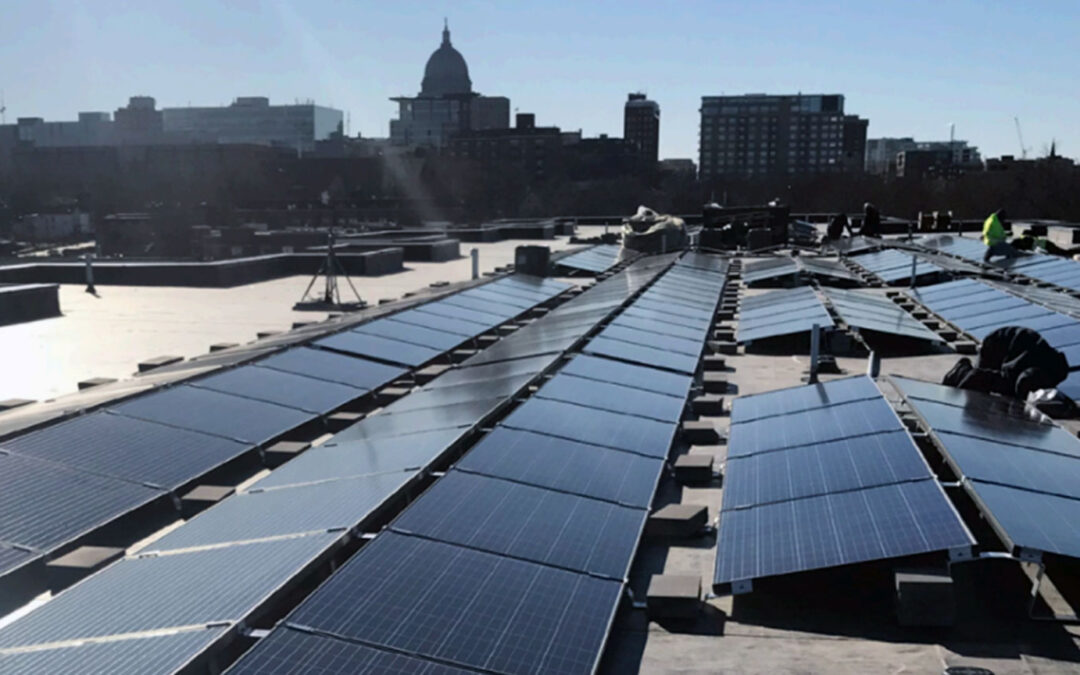The Wisconsin State Senate demonstrated unanimous support for clean energy today with the passage of SB 692, which updates Wisconsin’s Property Assessed Clean Energy (PACE) program. The bill now moves to the State Assembly, where similar bipartisan support could pass the bill before the end of the session.
“We are excited to have bipartisan, unanimous support for this clean energy financing option which will help Wisconsin businesses shift to clean energy and drive economic investment. We thank Senator Cowles for introducing this legislation which demonstrates the broad appeal of common-sense clean energy solutions,” said Heather Allen, Executive Director of RENEW Wisconsin.
PACE financing creates a mechanism for commercial, industrial, health care, agricultural, nonprofit, and multifamily property owners to obtain low-cost, non-recourse financing for up to 100% of the cost of energy efficiency and renewable energy improvements. Financing options up to 30 years yield positive cash flows and increase the net operating income for commercial and industrial building owners. PACE loans are attached to the property, not the person, allowing the remaining cost of those improvements to transfer to a new owner if the property is sold.
SB 692 will improve access to PACE financing in Wisconsin by adding clarity and expanding eligibility.
Among other changes, the legislation:
- Expands the type of projects that may be financed to include energy reliability improvements, weather-related resiliency projects, electric vehicle charging infrastructure, and stormwater control measures.
- Defines the term of the repayment period, clarifying that financing may be repaid through a lien, and ensures that all mortgage holders provide written consent before the issuance of funding.
- Removes the requirement for energy and water savings to exceed project costs and would instead require that the owner obtain a third-party assessment of the anticipated energy and water cost savings from the proposed project and provide confirmation of proper installation after work is completed.
- The bill also prohibits PACE financing for residential units of less than five units. Wisconsin does not currently have a residential PACE program. In the few states that have tried implementing a residential program, problems developed when individual homebuyers did not fully understand the implications of a PACE loan.
“Regular updates to our energy laws and financing programs like PACE allow Wisconsin’s citizens to benefit from the many advancements in clean, affordable renewable energy and energy efficiency technologies,” said Jim Boullion, Director of Government Affairs.

